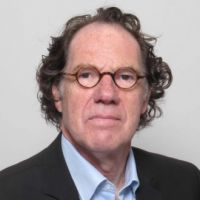Seminar: Is religious radicalization a threat to stable countries in West Africa?
 Peter Knoope headed a team that conducted field research in Ghana and Benin, exploring the potential for religious radicalization in stable countries in West Africa. The team looked into religious, historical, political and societal dynamics that may constitute elements of future (in)stability.
Peter Knoope headed a team that conducted field research in Ghana and Benin, exploring the potential for religious radicalization in stable countries in West Africa. The team looked into religious, historical, political and societal dynamics that may constitute elements of future (in)stability.
New religious “ideologies” (Christian evangelism and/or Sunni revivalism), mixed with economic frustrations, have deeply impacted the traditional balance and make long-term stability a challenge for many countries in the region. Peter Knoope will address ways in which the Ghanaian and Beninese actors deal with politics, identity and societal stress. He will also address the influence of external actors, from the region and beyond, and potential spillover of nearby conflicts. His presentation will highlight issues such as border porosity, absence of a regional strategic approach to counter-terrorism, youth frustration towards the elder’s political and economic monopoly, rural and urban disparities and rampant illiteracy. These regional aggravating factors are divisive and fuel the spread of extremist ideology. His research can be considered as an early warning and comes to the conclusion that action is needed urgently.
Speaker
 Peter Knoope is a diplomat who was inter alia Head of Mission to Afghanistan and headed the Humanitarian Aid section at the Dutch Ministry of Foreign Affairs.
Peter Knoope is a diplomat who was inter alia Head of Mission to Afghanistan and headed the Humanitarian Aid section at the Dutch Ministry of Foreign Affairs.
Currently, Peter is a Senior Visiting Fellow at the International Centre for Counter-Terrorism – The Hague (ICCT). He was the Director of ICCT from its inception until August 2014. Prior to his arrival at ICCT he was Deputy Director of the Policy and Strategy Department of the Dutch National Coordinator for Counter-Terrorism (NCTb). The NCTb was established in 2005, following the terrorist attacks in Madrid of 11 March 2004 and the killing of Theo van Gogh in the Netherlands, and is responsible for the development and coordination of the government wide counter-terrorism strategy in the Netherlands. He was involved in the development of the NCTb from its inception and was responsible for the coordination between the Dutch government’s national and international counter-terrorism policy.
He has also worked in development cooperation and research programmes in Tanzania, Cameroon and Senegal.

